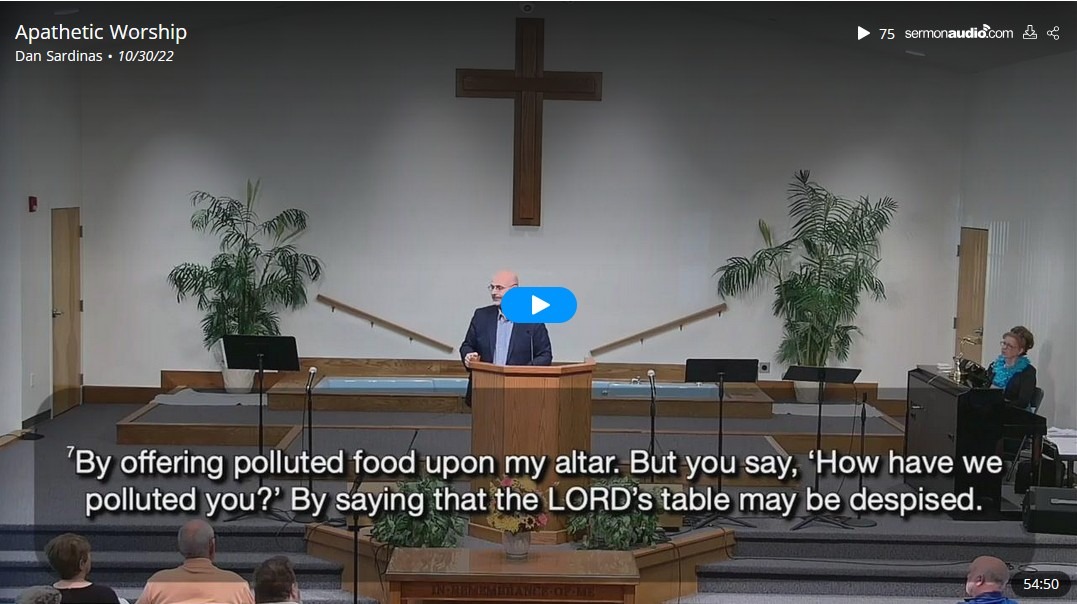Auto-generated transcript:
Open up your Bibles this morning to Malachi, chapter one, verse six. As you turn there, let me give you my thanks for your kindness, as always. To answer Dave’s question, I always feel appreciated, and I’m not just saying that. I’m blessed with a loving church family. Your words of affirmation, prayers, gifts, and kindness throughout the year encourage me greatly. Lord willing, this spring will mark 10 years serving here. We praise God for those years. Teaching you God’s Word each week is truly a joy. Honestly, your hunger for preaching and truth is my greatest encouragement. When you share how God is working in your life, it deeply blesses me and affirms my calling.
Let’s pray. Father, thank you for your blessing and your people. They’ve shown constant love and kindness to us. Help us love them in the Word and speak truthfully, even when difficult. May your Word accomplish your work. In Jesus’ name, amen.
If you missed last week, we began studying Malachi, the last Old Testament book. Malachi occurs about 100 years after Israel returned from Babylonian captivity. Jerusalem had been destroyed, the temple demolished, and survivors enslaved for 70 years. Afterward, God restored some people to rebuild the temple and city walls. However, 100 years later, their hearts had grown cold and apathetic—just going through religious motions without passion.
Malachi presents six arguments God has against his people. Last week, we saw they questioned God’s love. Today, God questions their love for Him. In verse six, He says, “A son honors his father and a servant his master. If I am a father, where is my honor? If I am a master, where is my fear?” God addresses the priests who despised His name. The Hebrew word for honor, “kavod,” implies weightiness and glory. Honoring God means recognizing His greatness, gravity, and glory. But the priests failed to properly honor and fear God, showing disrespect instead.
God explains their disrespect in verse seven—they offered polluted food, unapproved sacrifices, on His altar. The priests asked defiantly, “How have we despised your name?” By treating God’s commands lightly and offering imperfect sacrifices, they showed contempt. Their worship revealed hearts that didn’t love God, giving Him leftovers rather than their best. They respected earthly governors more than God, showing their priorities were deeply flawed.
God pronounced severe judgment, saying He would not accept their offerings. A shut-down temple was preferable to dishonoring worship. These priests failed as representatives, but we have a greater high priest—Jesus, who perfectly represents us before God. Jesus offers an acceptable sacrifice on our behalf. Unlike the flawed priests of Malachi, Jesus leads us into genuine, spirit-filled worship that pleases God.
We must examine our hearts today: Is our worship apathetic or passionate? Do our lives reflect God’s glory and honor? Let’s repent of passionless worship and focus anew on Christ, who has perfectly fulfilled all requirements on our behalf. May our worship honor and fear God as our great Father and Master.
Let’s pray. God, transform our hearts and worship. Increase our view of your glory. Thank you for Jesus, our perfect priest and sacrifice. Help us passionately live and worship for your name’s sake. In Jesus’ name, amen. Let’s stand and sing.

